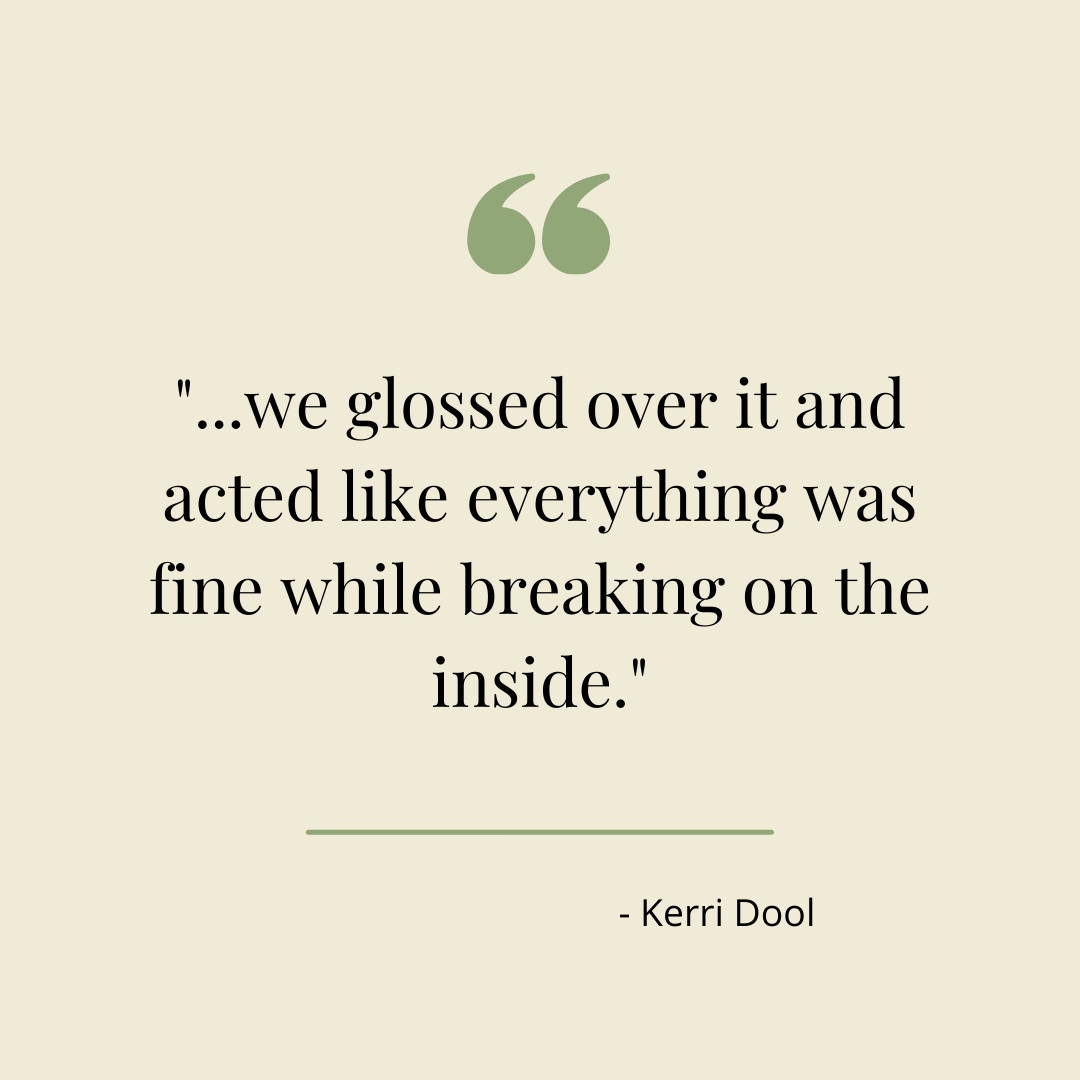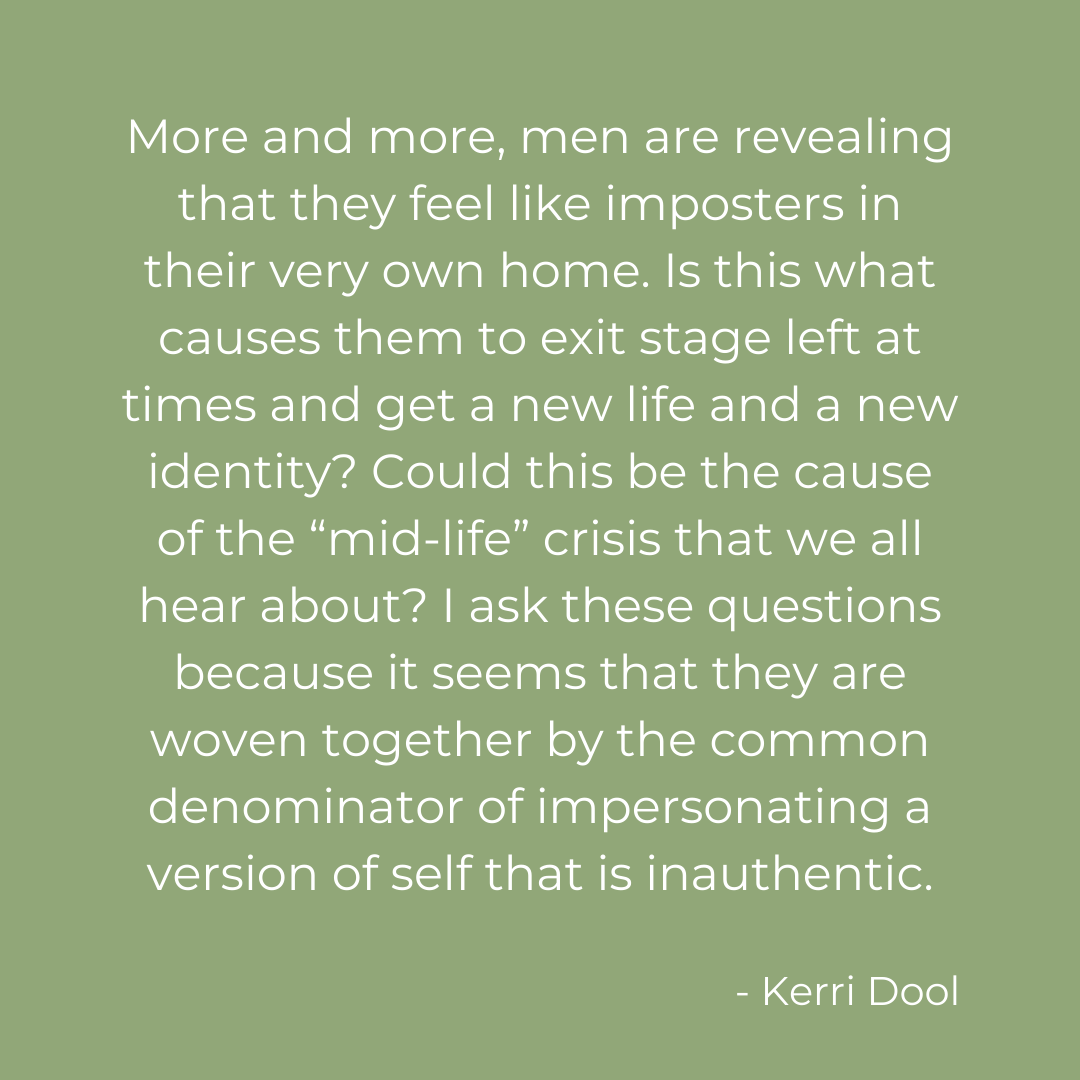
What does it mean to really remove our masks?
Is our display of competence really just a carefully orchestrated act that we play out to pull off the many “roles” we showcase to the world?
At a time when there is so much division around the masks that we’re asked to wear to protect ourselves, we need to start talking about the invisible “masks” that we put on to protect ourselves emotionally every day.
Most of us have been in a situation where we felt we had to “fake it to make it.” I’m talking about those times when we knew we were definitely in over our head and there was no turning back.
I’m talking about those times when we weren’t feeling quite ourselves and something MAJOR happened in our lives (like a breakup or losing a job), and yet, we glossed over it and acted like everything was fine while breaking on the inside.
Sometimes our family even reinforces this illusion to the outside world, telling people we “are great” when others ask about us, further solidifying the concept that our image, our representation of self, is a carefully constructed and regulated identity.
It might have been a big job promotion, becoming a parent and bringing your baby home for the first time or even starting a serious relationship with someone (where you felt ill-equipped). It’s that pivotal moment when we look ourselves in the eye and say: ’yep, I have no freaking idea what I’m doing, and wow, I hope this works out.’ Instead of honouring this feeling and making necessary changes, we hide behind the version of ourselves that we think the world wants, and the act continues.
At any given moment in this uncertain and highly uncomfortable role, the mask may slip, and it can become glaringly apparent that we are not who we lead people to believe we are or who we even want to accept as our authentic selves.

When we drop the “mask” either voluntarily or because we just can’t keep up the charade any longer, what’s revealed is often a more tender and vulnerable version of ourselves.
Otherwise known as imposter syndrome, the emotional masks that we put on to show up every day and perform for the world have major consequences on our personal and professional reality. While we can say that everyone struggles with this, research shows that Men, especially, struggle with the phenomenon known as Imposter Syndrome (businessindsider.com)
Hi, I’m Kerri Dool, and I’ve been a social worker for over seventeen years now, offering counselling services and running a private practice. Over the last two years, we have seen a significant increase in the number of men who reach out to us. Men who are tired of feeling overwhelmed and pretending that everything is fine. Men who finally have decided to put their emotional health first. To deal with the past to live a full life. Men who for so long have pretended they are o.k., even when they are struggling silently on the inside.
Sound familiar? If it does, you need to know you’re not alone.
Let’s be real about all of this. What does it look like and feel like to be an imposter in your own body and in your life? I’ve heard from so many men that they are exhausted at the end of the day. Not only are you trying to do what you need to do at work, you often come home and have to put on another alter ego of “parent.” For some, it’s so hard to sit at the dinner table, shut off from the demands of your work life and switch into dad mode. Sometimes, it can just feel so overwhelming that you end up taking a breather away from the family, watching a show downstairs in the basement, only to be accused later by your partner of being uninterested in your kids and not pulling your weight at home. Am I right?
Or maybe you are the “yes man!” You say yes to everyone and everything because the idea of not being liked or having to deal with some kind of conflict that might arise is worse than just agreeing and going along with all the requests. You wear the “yes” mask and again, pretend that it’s all good, when really, you are so spent and stressed about the growing “to do” list, that you can’t even make space for something you might need or want.

This is where I hope to shed some light on the situation.
Fact: most men aren’t calling up their guy friends to share their feelings. It can feel very isolating and lonely going through all of this, and yet, so many men are feeling the very same way. In a 2018 research article (Badawy et al.), men we identified as having more anxiety due to negative feedback and situations where they had to be highly accountable. At first glance we might think that this is relegated to the work environment only, but being a parent and a partner can often result in feedback and accountability that mimics a “job.”
More and more, men are revealing that they feel like imposters in their very own home. Is this what causes them to exit stage left at times and get a new life and a new identity? Could this be the cause of the “mid-life” crisis that we all hear about? I ask these questions because it seems that they are woven together by the common denominator of impersonating a version of self that is inauthentic.
I think it’s less about being uninterested in parenting or running from responsibility or not wanting to have the meaningful conversations and more about how being emotional might look to other guys or how it feels to be judged by partners, friends, family etc. What amount of being vulnerable would be required and how unsafe does that feel?
What can you do to feel a little more like yourself and less like an Imposter in your own life?
Accepting all parts of ourselves: Start being a little kinder to yourself and all of your feelings that come up. When we do this, it becomes less likely that we will feel the need to pretend or reject who we are, how we feel and what we are experiencing in situations.
Talking about it: Getting angry is often a go to response when enough is enough. It’s the “safer” emotion for men to show the world. Under anger often lies sadness, fear, grief, shame. It’s important to talk about what’s bothering us to dig a little deeper and explore the root of the issue. We can better diffuse the emotion and find solutions for situations troubling us. It takes practice to talk about our feelings, so little by little, this can become something that we learn to do. A therapist can really help with this.
We are what we think: We have over 70,000 thoughts per day, and many of them are far from complimentary. Starting to be aware of what we are saying to ourselves each day is the first step. The next step is to start changing the story, focusing on our strengths instead of our limitations and encouraging ourselves.
Not comparing or competing: Part of becoming more authentic and less of an imposter in our lives is being true to who we are. It’s easy to look at other guys and compare or compete for the life that they have. Instead, look at everything you’ve created in your world and be proud of that. What’s something that makes you unique and cool as a human being?
This blog is a shout out to all the men who have felt like they had to pretend to be someone they aren’t at some point. It’s a message to you, to remember who you are, to start being true to yourself and to know that it’s o.k. because the authentic version of you, is the one that will win at the “game of life” every day of the week.
Warmest Wishes,

Start with one of our Wellness Team Members!
Copyright © 2021 K Dool Social Work Professional Corporation
Request a call for more information on our services